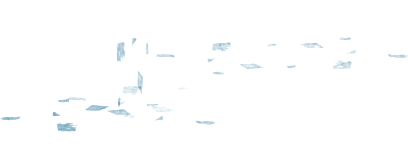
Somalia/Somaliland
Somalia continues to suffer from the effects of almost thirty years of civil war which has raged across all three largely autonomous zones: Somaliland, Puntland and South-Central Somalia.


Inadequate access to primary health care services, inadequate quality of service provision, poor hygiene and sanitation, and low supply levels are just some of the factors which contribute to the country’s poor health indicators.
During the first thirteen years of the civil conflict (until 2003), not a single health training facility was operational and thus no health professionals of any cadre were produced. As a result there are just 0.29 doctors, nurses and midwives per 1,000 population, whilst the World Health Organization recommends a minimum staffing of 2.3 per 1,000 in order to ensure adequate health care provision.
THET has been working to improve the capacity of the Somalia/Somaliland health workforce since 2000 and in 2011 opened a Country Office in Hargeisa.
Somaliland also has one of the worst maternal and child mortality rates in the world. With the majority of the population living in isolated, rural areas of the country, many pregnant women are unable to access healthcare services. Community-based health care can provide a lifeline to these communities. As such, THET is training members of remote villages with the skills needed to support their communities with healthcare services they would otherwise not receive.
THET has been operating in Somalia/Somaliland for over 20 years, excelling in policy and systems development, health sector regulation, enhanced leadership and management, capacity strengthening, health worker teaching and training, and the promotion of sustainable local organisations. Our holistic approach ensures engagement while embedding tools, systems, and capacity at all levels for long-lasting impact. By fostering sustainability, we contribute to a robust healthcare infrastructure. Through empowering leadership, enhancing skills, and supporting local organisations, we strive to improve healthcare delivery in Somalia/Somaliland. With a steadfast commitment, THET Somalia/Somaliland continues to make a significant impact in the region’s health.
CURRENT PROJECTS
National Quality Improvement Programme (2023 – 2025)
Funded by Qatar Charity through King’s Global Health
AIM: Contribute to quality, essential healthcare services and development of training for the health workforce.
IMPACT: The Ministry of Health Development (MOHD) has been supported to develop a national plan and improve governance for post graduate medical education. This includes support to:
- Map availability and distribution of specialist doctors in Somaliland.
- Map availability of existing PGME provision.
- Analyse numbers and type of medical specialists needed to meet population health needs.
- Make recommendations and develop roadmap on PGME options to meet specialist health workforce requirements to serve the Somaliland population.
PARTNERS: King’s Global Health, Ministry of Health Development (MOHD)
Partnerships for quality maternal, obstetric, and neonatal care for marginalised women (2023 – 2025)
Funded by Johnson and Johnson and the Fraxinus Trust
AIM: To help marginalised women in urban and rural areas within the Maroodi-Jeex region access improved quality maternal, obstetric and new-born care at public health facilities at community level.
IMPACT: Women’s health champions will mobilise and promote women’s health education amongst communities. Health workers in primary health facilities will be trained to deliver respectful, prompt emergency maternal and obstetric care.
PARTNERS: Ministry of Health Development
Strengthening Capacity of Biomedical Engineers in Somaliland (2022 – 2024)
Funded by the DAK Foundation
AIM: To significantly enhance the knowledge and skills healthcare workers at Gabiley, New Gabiley and Arabisyo health facilities by training staff in medical equipment management and usage, contributing to a substantial improvement in the overall quality of healthcare services for women and children in Somalia/Somaliland.
IMPACT: The programme will lead to enhanced competency in medical equipment management and usage within the maternal and childcare facilities including equipment operations and safety procedures, basic maintenance and troubleshooting, setup and installation, cleaning and sterilisation, and documentation and recordkeeping. There is a focus on the cultivation of a culture of continuous improvement that will result in sustained positive impacts on medical equipment management practices, ensuring long-term benefits.
Saving Mothers at Delivery (2021 – 2023)
Funded by Johnson & Johnson
AIM: To improve emergency surgical obstetric procedures and quality of care in identified facilities. The project will pilot a training programme to provide multi-professional team-based training at Hargeisa Group Hospital (HGH) and at District Hospital level.
IMPACT: Appropriate referrals and improved capacity of Emergency Obstetric Surgical Teams that results in timely and quality care. Expert and Mentor Trainers will be empowered and equipped to deliver training and supply mentorship.
PARTNERS: Royal College of Obstetricians and Gynaecologists, Lifebox Foundation and the World Federation of Societies of Anaesthesiologists
Leadership and Quality Improvement: Capacity building of early-career nurses/midwives at Hargeisa Group Hospital
Funded by the Burdett Trust
AIM: To increase leadership (confidence, competence, and capability) of participating nurses and midwives, enabling them to be more effective and increase their influencing and decision-making abilities. The programme also aims to raise the status of women, who comprise the majority of the nursing and midwifery cadres within the health workforce.
IMPACT: The programme has supported 16 nurses from Hargeisa Group Hospital through a Health Partnership model. The leadership training provided will focus on enhancing skills in various areas such as CV writing, team effectiveness, innovative change development, motivation, mentoring, and other crucial topics. The fellows will receive training from the Ubora Quality Institute to apply evidence-based leadership skills in implementing Quality Improvement (QI) projects within their facilities.
PARTNERS: University of Health Equity, Ubora Institute, Hargeisa University, and King’s Global Health Partnerships.
For more information about our work in Somalia/Somaliland, please contact our Programmes Coordinator, Kat Brassington, on katharina.brassington@thet.org.


